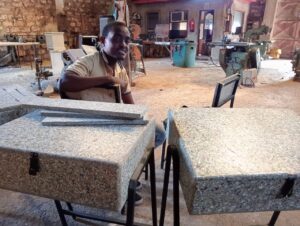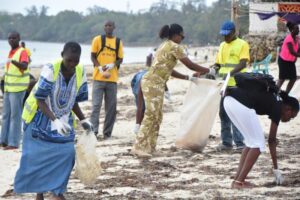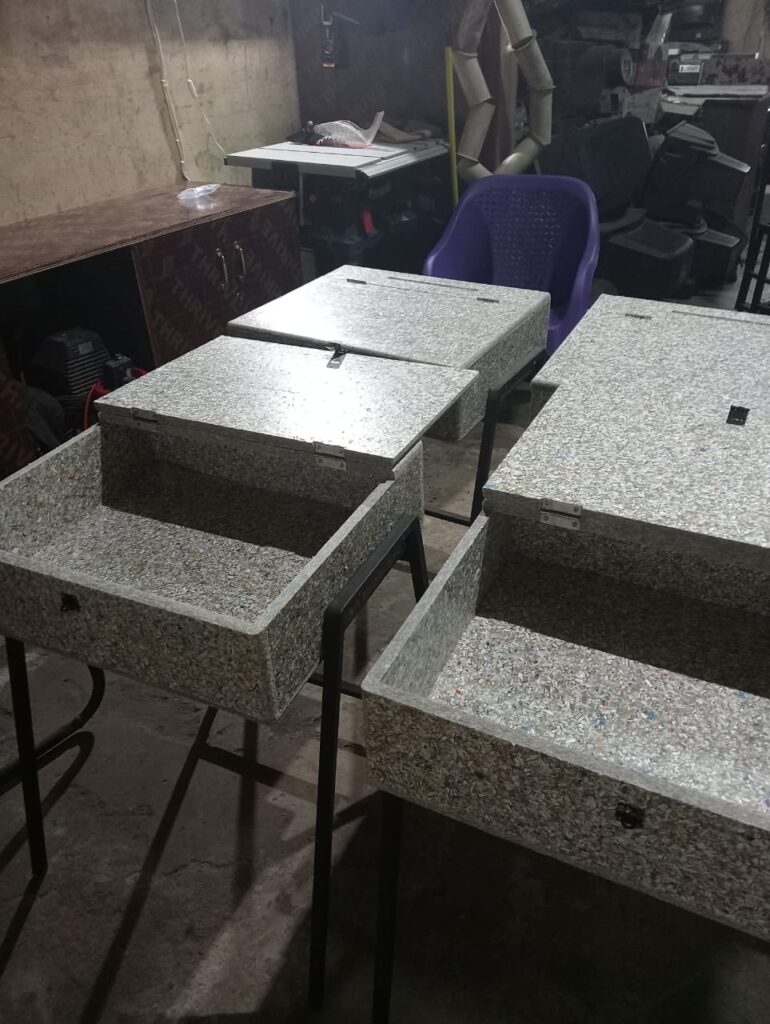By Nuru Salim
Twendegreen, a Mombasa-based environmental initiative led by businessman Faraj Ramadhan is making waves by transforming plastic waste collected from Likoni informal settlements and beaches into sustainable furniture.
Founded during the Mombasa Plastic Prize Challenge, Twendegreen seeks to address Mombasa’s escalating plastic pollution problem while supporting local communities through job creation and sustainable development.
Twendegreen’s process begins by collecting plastic waste, which is then sorted, cleaned, and shredded into small pieces.
The plastic fragments are heated in a high-pressure press molding machine to create durable sheets.
The sheets are subsequently cut and assembled into Eco-desks and other types of furniture, creating a sustainable product line that addresses pollution and meets community needs.
Ramadhan’s inspiration for Twendegreen stemmed from both a concern for environmental sustainability and a desire to tackle plastic pollution head-on.
“We wanted to create a solution that not only addresses pollution but also gives back to the community,” he said.
Twendegreen’s mission aligns with several Sustainable Development Goals (SDGs), notably those focusing on responsible production, environmental conservation, and community welfare.
However, Twendegreen faces numerous operational challenges. Plastic collected from informal settlements and beaches is often heavily contaminated, making sorting and cleaning labor-intensive and costly.
A lack of community awareness about waste segregation also complicates the recycling process.
In response, Twendegreen conducts regular community sensitization programs, educating residents on the importance of sorting waste at the source to ease processing and improve sustainability efforts.
To fund its operations, Twendegreen has secured grants, developed partnerships, and advocated for supportive environmental policies.
Additionally, the organization actively engages local schools and communities, fostering a collective sense of responsibility and encouraging community members to support recycling efforts.
“Educating communities and gaining their trust is essential for our work to succeed, but it’s also one of our greatest challenges,” Ramadhan noted.
Looking ahead, Twendegreen aims to expand its impact beyond Mombasa, with plans to reach communities across Kenya and potentially other countries. 
The organization’s ambitious goals include increasing production capacity, creating additional job opportunities, and introducing more products made from recycled plastic.
Twendegreen also plans to launch school clubs and community workshops to promote environmental awareness and sustainability among young people.
Despite challenges like high operational costs and limited funding, the community has shown strong support for Twendegreen’s efforts.
“The local response has been overwhelmingly positive,” Ramadhan shared.
“The people of Mombasa recognize the need for sustainable solutions to the plastic problem.”
As Twendegreen continues to scale its impact, it remains a model for how business-driven environmental solutions can address pressing ecological issues while building stronger communities.


